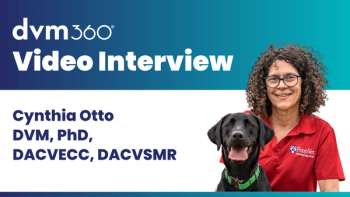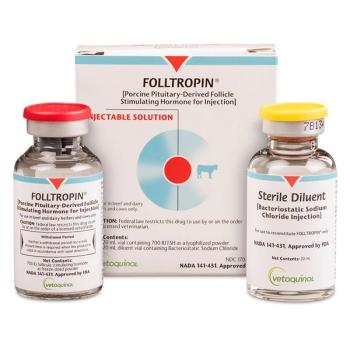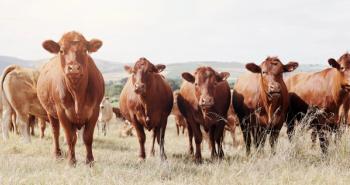
- dvm360 February 2024
- Volume 55
- Issue 2
- Pages: 50
The interview
With appropriate communication, a lot can be learned about an applicant
Editor’s note: All names and businesses in this dilemma case are fictitious, but the scenario is based on real occurrences.
The year 2024 has brought many logistical changes to the clinical practice of veterinary medicine. With COVID-19, the changing economy, and inflation, the only constants in the veterinary practice landscape are the needs of the pet patients. One of the profession’s biggest challenges is staffing, and the need for veterinarians and veterinary technicians has increased while the availability of these professionals has decreased.
The Li Animal Hospital is a large, successful, Southwestern companion animal clinic. Forty-eight staff members provide cutting-edge pet care, along with excellent customer service and client support. It is very important that the selection of new staff members is diligent and insightful. The need for an efficient employment process is the key to successfully hiring quality team members.
The clinic’s administration determined that an effective candidate’s interview was the single most important component of the hiring process. This conclusion was the result of the impact of misleading interviews in past years. An analysis of past interviews resulted in some new recommendations that were essentially do’s and don’ts when interviewing prospective staff.
An applicant’s interview should be in person, if possible. For many reasons, FaceTime, Zoom, and other digital options have replaced the in-person interview experience. There is an invaluable nuanced difference between a true face-to-face interview and virtual encounters. Effective interviews require diligent résumé verification, an assessment of communication skills, and a discussion of philosophy and goals as they relate to the new workplace. The Li Animal Hospital administrators have learned from negative experiences what situations to avoid when interviewing a prospective staff member. The following are some of their recommendations:
- Let the applicant do most of the talking. Responses to simple, to-the-point inquiries are very revealing. This allows the applicant’s communication skills and practice philosophy to be assessed.
- Do not inquire about their family, marital status, and social interests (check state laws concerning inquiry restrictions) unless the applicant chooses to expound on the subjects. Additionally, an applicant may not say it, but may believe these are intrusive inquiries.
- Do not ask leading questions that may prompt a response the candidate thinks you want to hear, as opposed to providing an honest reply. For example, an interviewer says, “We are very proud of our relationship with local shelters. What is your experience with humane organizations?” The applicant may feel their experience with humane organizations has been problematic but may hesitate to reveal that in view of the leading question.
A valuable part of the interview process should be a “working interview” component. The applicant should spend at least part of a workday in the clinic environment interacting with staff and clients. Without a working interview, the information necessary to hire a valued staff member is incomplete.
The veterinary workplace is unique as compared with all other medical workplace environments. In addition to requiring professional skills, staff is surrounded by animals. Compassion is as important as skill level. A cooperative workplace chemistry is mandatory when working with animals as patients. Once a hiring decision is made, indoctrination and training of a new staff member is time-consuming and costly. When the wrong hiring choice is made by either the practice or the applicant, the negative ripple effect reverberates through all areas of the workplace. The interview process is the first, and possibly the most important, step for acquiring staff members that share the culture and qualities of an excellent veterinary practice.
Rosenberg’s response
In today’s veterinary facilities, technicians and veterinarians must be more than just medically capable. They must have excellent communication skills, be embraced as coworkers, and have a compassionate commitment to their pet patients. These are the qualities necessary to have a gold standard practice. Hiring excellent staff requires diligent exploration on the part of the employer as well as the applicant. I strongly advise that the practice interviewer carefully prepare for the applicant’s interview well in advance. Walking into an interview after quickly looking at a résumé can often lead to a hiring mistake.
Marc Rosenberg, VMD, is the founder of Voorhees Veterinary Center in Voorhees, New Jersey. Although many of the scenarios Rosenberg describes in his column are based on real-life events, the veterinary practices, doctors, and employees described are fictional.
Articles in this issue
almost 2 years ago
dvm360® product report: Mobility products, plus cat toothbrush, and morealmost 2 years ago
How to approach pet dental care year-roundalmost 2 years ago
How to apply a phalangeal cast in horsesalmost 2 years ago
AI vs burnoutalmost 2 years ago
Noteworthy news: Fetch conference is headed to Nashvillealmost 2 years ago
Beyond-use dates: Ready or not, USP guidelines will impact your practicealmost 2 years ago
It’s “tooth-thirty.” Do you know where your instruments are?almost 2 years ago
AI-powered diagnostics providing individualized patient carealmost 2 years ago
Preventing canine parvovirus infectionalmost 2 years ago
Creating exceptional lobbies and customer-care areasNewsletter
From exam room tips to practice management insights, get trusted veterinary news delivered straight to your inbox—subscribe to dvm360.






